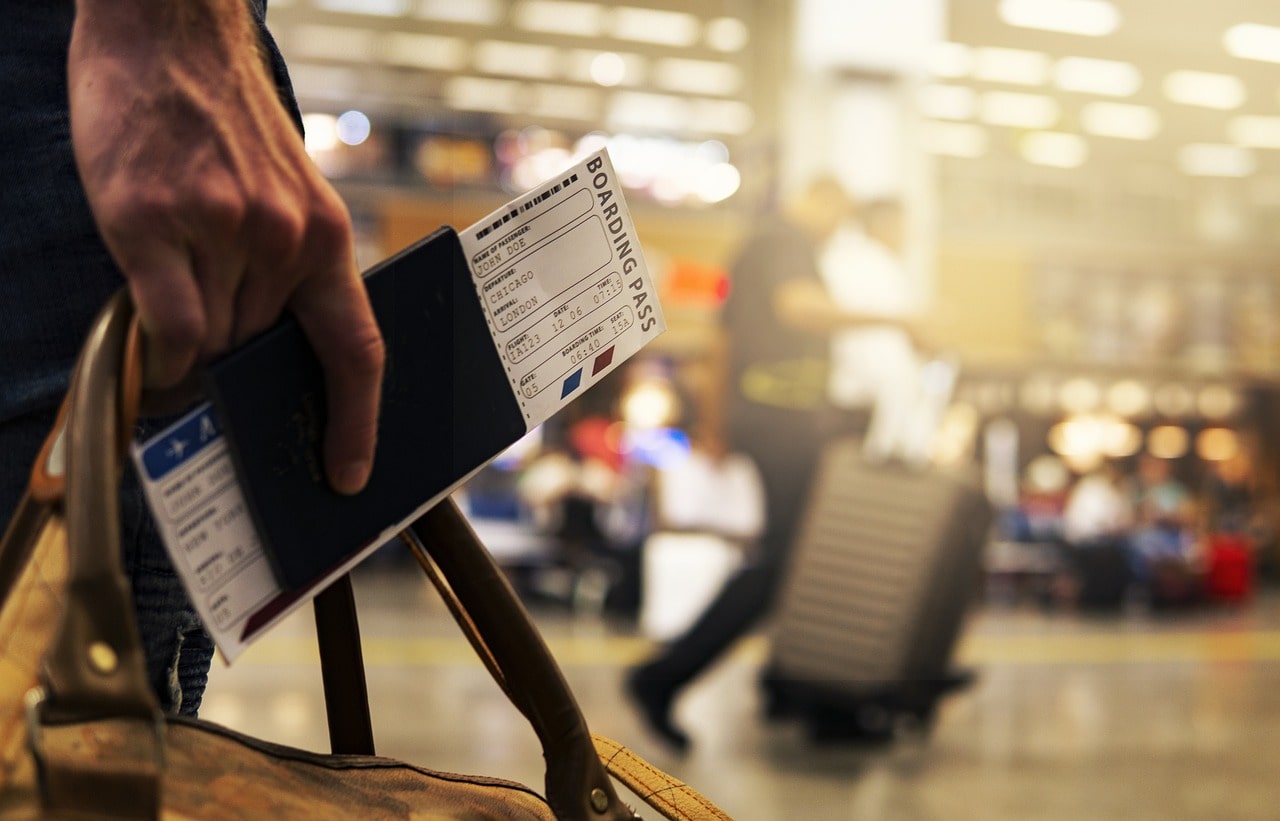There are many reasons why so many non-EU citizens apply for visas to enter Italy each year. Navigating through the heterogeneity of
visa types and application methods may not be easy for foreigners. For this reason, our Syndicate has decided to publish an updated guide on the subject, reminding who needs this document and how long it lasts.
TABLE OF CONTENTS
What is an entry visa
An entry visa is the authorization issued by a state to a non-EU citizen who wishes to enter it. It should be requested from the diplomatic-consular representations present in the foreigner's country of origin and is distinguished in:
- Unified Schengen Visa or Uniform Visa (VSU), which allows movement throughout the entire territory of the treaty states,
- visa with limited territorial validity (LTV) authorizing only movement within the territory of one or certain member states,
- limited territorial visa (LTV) that authorizes movement in only one state,
- airport transit visa (ATV), which allows transit through the international area of airports in the territory of member states,
- national visa (VN) that allows one or more entries as well as to stay more than 90 days in a Schengen state. It also allows free movement in Schengen countries other than the one issuing the visa, for a period not exceeding 90 days per semester.
In addition, the visa can be of different categories:
- A to authorize airport transit,
- C per autorizzare soggiorni di massimo 90 giorni,
- D to authorize stays longer than 90 days.
What type D visa means
All non-EU citizens who wish to stay for a long period in Italy, for whatever reason, must first have a
national entry visa lasting from 91 to 365 days.
The national long-stay or long-stay visa is identified by the code VN-type D. The foreign national within 8 working days of arrival in Italy must apply for a
residence permit.
What type C visa means
The Uniform Schengen Visa (VSU), valid for entry into the territory of the Schengen Area, issued for short-term stays is the Type C visa. Its maximum duration is 90 days per 180, to be counted from the date of first entry into Italy. Uniform Schengen visas C1 valid for one year, C2 valid for two years, C3 valid for three years and C5 valid for five years can be obtained in certain cases.
Quale visto richiedere per entrare in Italia?
Based on the reasons for issuance, we distinguish:
1. invitation visa
2.
business visa
3. family visa
4. tourism visa
5.
working-holiday visa
6. medical treatment visa 7. sports competition visa
8. self-employment visa
9. volunteer visa
10. adoption visa
11.
study visa
12. transit visa
13. mission visa
14. research visa
15. religious visa
16. self-employment visa for the purpose of establishing innovative start-ups
17. re-entry visa
18. visa for elective residence
19. seasonal employment visa
20. investor visa
21. diplomatic visa
22. employment visa
23. digital nomad visa - (introduced by the
decree of January 27, 2022)
When to apply for a visa?
The visa application should be made no more than
six months before the start of the planned
trip and no more than 15 days in advance.
The time required to obtain a visa varies depending on the type. Schengen visas usually take 15 to 45 days. Long-term visas take up to 90 days from application.
Difference between duration and validity of visa
Two time values are indicated on each entry visa:
- the duration corresponds to the actual maximum authorized period of stay;
- validity is the time frame within which the visa can be enjoyed.
Generally, the validity is greater than the duration. By the last day indicated by the validity, the foreign national must leave the Schengen area.
Can you extend your visa when you arrive in Italy?
Those with short-stay visas can stay in Italy only for the stipulated period of time. Exceptions are cases of inability to leave which are adequately justified and for which the competent authority may extend the stay. Those with long-term visas will have to convert them into residence permits after arriving in Italy.
Where do you apply for a visa?
The visa application must be submitted to the visa office of the Italian Embassy or Consulate present in the foreign national's place of residence. Contact information for the offices can be found on "
The Visa for Italy," by selecting the country of residence. The list of documents required at the time of application also varies depending on residency and are listed on the above website.
Regular submission of documents does not ensure the issuance of a visa. In the case of a
denial of a visa that was not requested for family reasons, an appeal can be made to the Regional Administrative Court (R.A.T.). This must be done within 60 days from the date of notification of the denial. In the case of denial of a visa for family reasons, an appeal may be filed without time limit to the Ordinary Court.
Invitation letter for tourism
The tourist visa for Italy authorizes entry into the country for tourism, business, study, cultural exchange, medical treatment or to visit friends and relatives. A letter of invitation is a document through which an Italian citizen or a foreign national legally residing in Italy can
invite a foreigner to the country
for tourism. The application document should indicate personal data, employment status, reason and duration of stay. It must also provide information on the possibility of securing food, lodging and medical coverage for the invitee. The foreign national must present such an invitation card in person to the Italian Embassy or Consulate in the country of residence.
Information for completing the letter of invitation
Here is all the information about the invitee and the invitee to be included in the tourism invitation letter:
INVITANT
First name
Last name
Date and place of birth
Nationality
ID and passport number
Residence permit
Address
Profession
Telephone
Email
In case of company:
Company name
Registered office
Qualification
Phone
Email
Address where the guest will be hosted
INVITED
First name
Last name
Date and place of birth
Nationality
ID and passport number
Address
Profession
Relationship to the invitee
Purpose of stay
Period of stay
The invitee must also declare his or her willingness to notify law enforcement of the invitee's presence at the specified address within 48 hours of his or her arrival on Italian soil.
WAI's assistance with visa applications.
Welcome Association Italy offers assistance to non-EU citizens in applying for visas to enter Italy. We propose suitable and convenient solutions to our members, depending on their different needs, possibilities and motivations. If you still have doubts or inquiries after consulting this guide, please do not hesitate to get in touch with us.



Lascia un commento
Comments